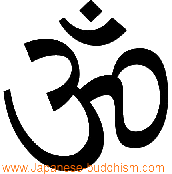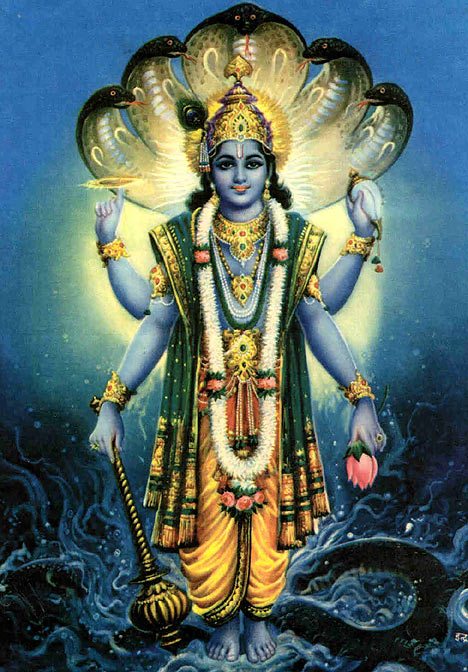Buddhism grew from
Hinduism but what are the differences?

Hinduism is
one of the, if not the oldest religion still practiced today. One could
argue that Animism holds that title but Hinduism, is a highly organized
religion that is widely practiced in India and part of Asia. Buddhism
shares many things with it. Let’s compare them to see the differences
and the similarities.

Buddhism, just like Hinduism comes from the Indian subcontinent. It
could be said that, just like Christianity sprouts from its Judaic
roots, so does Buddhism sprout from the Hindu tradition. It is well
recorded that the Buddha was born a Hindu, just like Jesus was born a
Jew. When he was 29 years old, being disappointed by the suffering
around him, Siddhartha Gautama (The historical Buddha) decided to leave
everything behind and became an hermit. Before finding his own path, he
went to Hindu gurus to find an answer to the problem of suffering.
Like many of his teachers, he first practiced
self-mortification. Soon he found that this path would not allow him to
attain illumination if he was to die of starvation first. I decided
then to practice something the Buddhist call the middle-way?a path of
moderation away from the extremes of self-indulgence and
self-mortification.
To learn more on the subject of Hinduism and
Buddhism,
look for a book called Western Seeker, Eastern Paths. It talks about
Hinduism, Buddhism, Taoism and Tantra.
It is suggested that Buddhism gained popularity in India
because it released the people from the oppression of tradition and
orthodoxy attached to Hinduism. The teachings of the Buddha created
hope and an alternative for the people who had no hope of salvation and
freedom of choice in a society dominated by the caste system, the rigid
rituals and the unchanging status only the elite could hope to enjoy.
The Vedic religion was very much a rigid mold in which Buddhism too
shape and outgrew to encompass everyone, no matter their caste or
origin.
In Hindu traditions, Buddha is regarded as one of the avatars
of Vishnu (the Supreme God in the Vaishnavite tradition of Hinduism.)
Strong rivalry existed between the Hindus and the Buddhist, though. The
followers of Siva and the Buddha could hardly stand each other in the
earlier times. There are records of Buddhist persecution by Hindu
rulers, though a great majority followed a policy of religious
tolerance. Sasank, a ruler from Bengal vandalized Buddhist monuments
and burnt the pipal tree, now known as the Bodhi tree in Bodh Gaya,
India, under which Siddhartha sat while pursuing enlightenment.
![]()
There are many fundamental differences between both religions but Hinduism and Buddhism influenced each other in many ways. The Buddhist concept of non-injury and compassion toward all beings in the universe took deep roots in the Hindu religion, while Mahayana Buddhism took example from the traditional Hindu forms of worship. Buddhism influenced the growth and development of Indian art and architecture and contributed in large part to the practices of breathing and meditation to attain mindfulness and higher states of consciousness. The Hindu tantra influenced the origin and evolution of Vajrayana Buddhism.
Hinduism and Buddhism share some of the following similarities.
- Both Hinduism and Buddhism teaches that the true nature of the world is illusion and that karma is what is keeping men tied to this world and the cycle of births and deaths.
- Buddha taught that desire is the main cause of suffering and removal of desire results in the cessation of suffering.
- Some of the Hindu texts such as the Upanishads (Isa) and the Bhagavadgita state that by accomplishing an action due to desire and attachment we are lead to bondage and suffering. On the contrary, if we accomplish an action without selfish desire, we are closer to liberation from the karmic cycle.
- Both religions believe in the concept of karma and the reincarnation of souls.
- Both preach compassion and non violence towards all living beings.
- Both believe in the existence of several hells and heavens or higher and lower worlds.
- Both believe in the existence of gods or deities on different planes.
- Both believe in certain spiritual practices like meditation, concentration, cultivation of certain mood of ecstasy and the channeling of these emotional energies that is induced by the maturing of devotion.
- Both believe in detachment, renunciation of worldly riches as a prerequisite to enter to spiritual life. Both consider desire as the chief cause of suffering.
- Buddhism and Hinduism have their own versions of Tantra.
- Both originated and evolved on the Indian soil. The founder of Buddhism was a Hindu who became the Buddha.
Here are now some of the differences we can see in the principles of the two religions.
- Hinduism is not founded by any particular person. Buddhism was founded by the Buddha.
- Hinduism believes in the efficacy and supremacy of the Vedic texts. The Buddhist do not believe in these texts or any Hindu scripture. (unlike the Christians adopting the Torah as the Old Testament)
- Hindus believe in the Atman, a concept closely related to a primordial soul, or God. Buddhism teaches that the belief in the Atman is the prime consequence of ignorance, which is itself the cause of all misery and the foundation of samsāra (the cycle of rebirth).
- Hinduism accepts the Buddha as an avatar of Vishnu, one of the gods of the Hindu trinity. The Buddhists do not accept any Hindu god either as equivalent or superior to the Buddha. In Buddhism, the Hindu gods are relegated to different roles but they are not more important the the Buddhas.
- The Buddhists consider the world as suffering and regard ending suffering as the chief aim of human life. The Hindus consider that there are four chief aims (arthas) in life which every being should pursue. They are dharma (religious duty), artha (wealth or material possessions), kama (desires and passions) and moksha (salvation.)
- Hindus also believe in the four stages of life (each cycle of 25 years having a role to play.) This is not followed in Buddhism. People can participate any time depending upon their spiritual advancement, not their age.
- Buddhists organize themselves into a monastic Order (Sangha) and the monks live in groups. Hinduism is basically an individualistic religion.
- Buddhism believes in Bodhisattvas. Hinduism does not believe in them.
- Buddhism acknowledge the existence of some gods and goddesses of Hindu pantheon, but give them a rather subordinate status.
- Refuge in the Buddha, the Sangha and Dhamma are the three cardinal requirements on the eightfold path. Hinduism offers many choices to its followers on the path of self-realization.
- Although both religions believe in karma and rebirth, they differ in the manner in which they operate and impact the existence of individual beings.
Suggested Further Reading
Vedanta and Buddhism A Comparative Study A Journey into Buddhism by Elizabeth J. Harris Concepts of Buddhism From the Teachings of the Buddha Peter Harvey, "The Selfless Mind." Curzon Press Dr. Michael Zimmermann, A Buddha Within
|
Return from Differences Between Buddhism and Hinduism to Facts About Buddhism Return from Differences Between Buddhism and Hinduism to Japanese Buddhism- Home |

New! Comments
Have your say about what you just read! Leave me a comment in the box below.